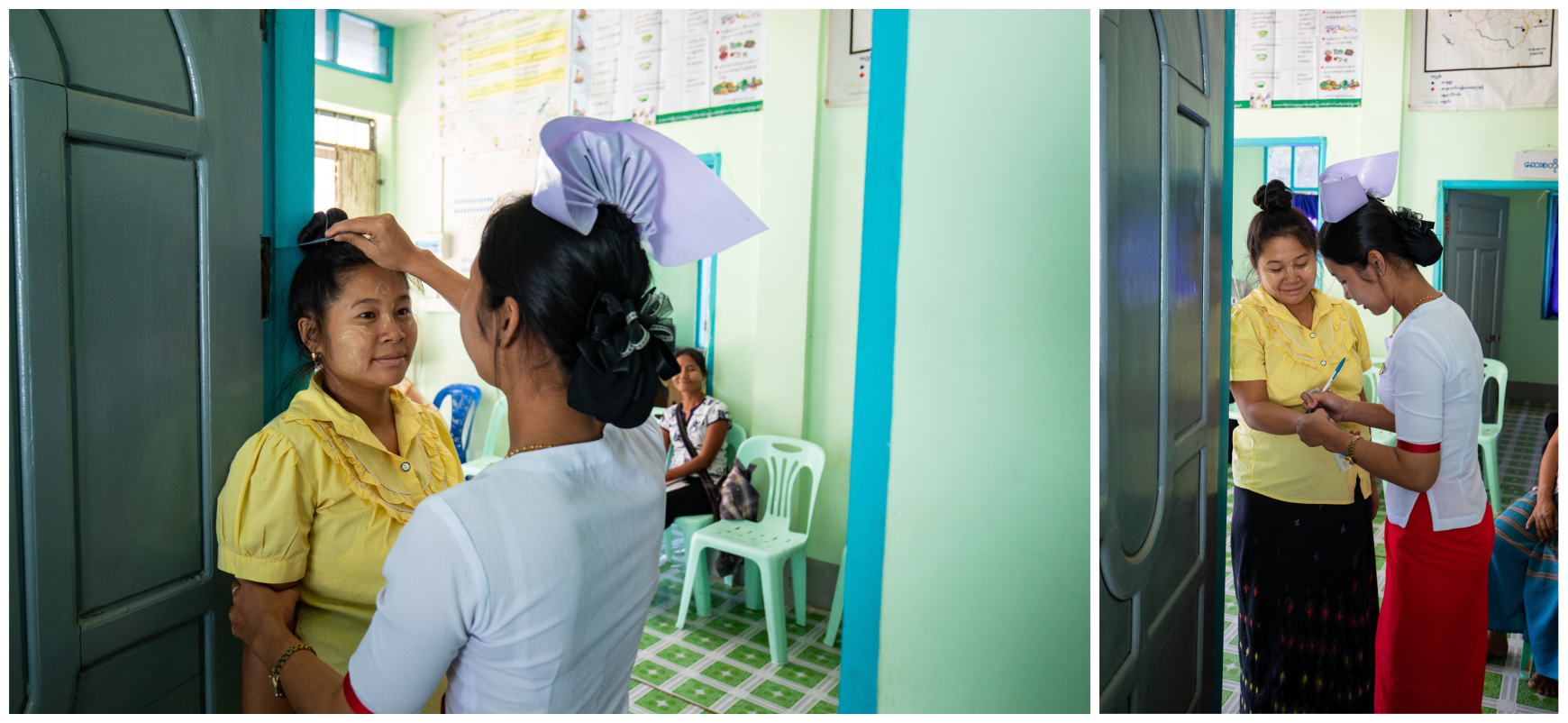In Myanmar midwives like Nan are becoming trusted professional support for the traditional birth attendants in the country’s more remote regions. And thanks to the EMBRACE project, Canadians are supporting both midwives and traditional birth attendants.
EMBRACE is a four-year project funded by the Government of Canada to improve the lives of approximately 100,000 people in Cambodia, Myanmar, the Philippines and Rwanda, especially women and children. The program trains community volunteers in better nutrition, healthcare and household agriculture and more. The program is facilitated by ADRA, a Canadian charity, part of a global network of offices working to alleviate poverty.
Sometimes EMBRACE provides funds for basic farming tools and seeds and, sometimes, for birthing clinics like the one where Nan works. It’s where she helps women coming from six nearby villages with their pregnancies and deliveries.

“Until recently, many births were done at home, using traditional birth attendants. But since ADRA and the EMBRACE project have provided a birthing ward, beds, birthing equipment, and supplies, almost everyone is now having their babies here where it is safer and more sterile.”
Better still, far more pregnant mothers now come to the clinic for prenatal exams. They learned how vital prenatal and postnatal visits are because of the information ADRA volunteers have provided in their villages. So, Nan can check the health and nutritional needs of the mother, immunize her, and provide counselling. Closer to term, the clinic can determine whether any complications are likely and recommend a doctor-assisted hospital birth in larger centres.
Fortunately, complications are relatively rare. “About 70-80% of the deliveries for this community can be done right here in the clinic.” The midwives and traditional birth attendants now encourage all pregnant women to plan their deliveries at the clinic where it’s safer for both mother and baby.
“Traditional birth attendants are still playing an important role in these remote villages,” Nan says. Usually, the mothers have known them for much of their lives and appreciate the vital emotional support of a trusted neighbour during such a potentially complicated experience.
The EMBRACE project also trains the traditional birth attendants in the latest methods of childbirth so they’re “ready in case of emergencies. But for the most part, midwives and traditional birth attendants are now working together.”
The EMBRACE project has also provided midwives with training that goes well beyond the delivery, going deeper into infant care and child-rearing: “early childhood development, early childhood nutrition and how to interact with small children, how not to scold or speak harshly but to be gentle and kind.”
The groups have even discussed the issue of gender equality and the many forms of abusive relationships, challenging some traditional beliefs. One of the EMBRACE project’s goals is to effect long-lasting change.
